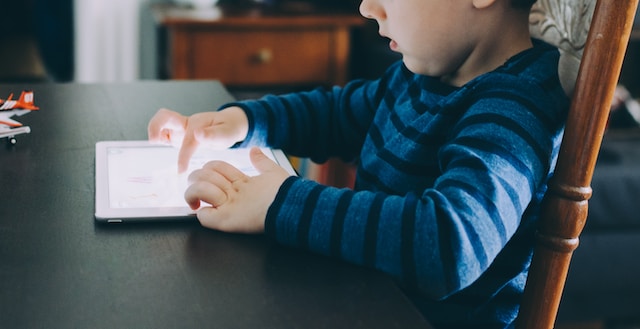A recent research study posits that children below the age of two should refrain from participating in screen-related activities entirely. Researchers conducting the study emphasize that any exposure to screens during early childhood may potentially impede sensory development. Consequently, they advocate for parents to eliminate screen usage until their child attains the age of two.
Screen exposure in toddlers increases risk of sensory issues
In the study led by psychologist David Bennet from Drexel University, it was found that children under the age of 2 exposed to movies and television had an increased risk of sensory development issues. Bennet highlights that if a child consistently avoids being held and shows discomfort in noisy environments, it may indicate an underlying concern.
Doctors emphasize the importance of monitoring signs of low registration in children, such as sluggish responses to environmental changes and delayed reactions when called by their name.
The study found a correlation between screen time and autism, but the author, Bennet, stops short of asserting that screen time is a potential cause of autism. Instead, the focus is on exploring the link between autism behaviors and early screen exposure, with a consideration of sensory processing as a possible element in the complex connection.
In the study researchers analyzed screen habit data from 1,471 children aged 24 months and younger. The findings, based on data from the National Children’s Study, indicated that screen exposure in babies and toddlers below two years old may result in sensory processing issues.
Sensory processing correlates with screen exposure in kids
Associate psychiatry professor at Drexel University, Karen Heffler, observed screen exposure and sensory processing outcomes at 12, 18, and 24 months, revealing a connection between screen exposure during these periods and increased atypical sensory processing at 33 months.
The study revealed that at 12 months old, children were 105% more likelihood to develop highly sensory behaviors. The odds increased by 23% for each additional hour of screen time at 18 months and by 20% at 24 months. According to Heffler, the study’s results are not surprising, as sensory experiences in early childhood impact neural connectivity and cognitive processing.


